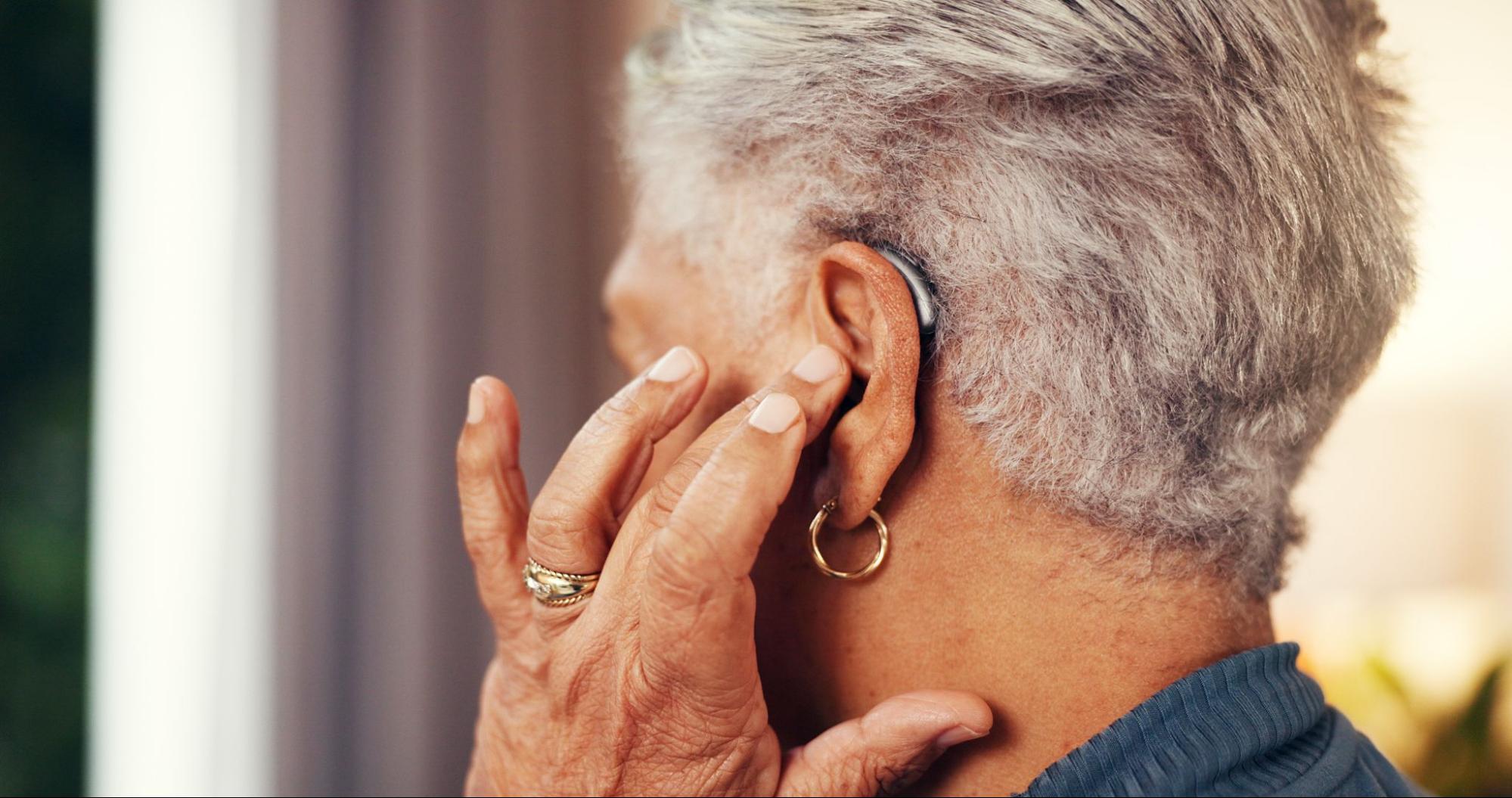Tinnitus explained: What that ringing in your ears really means
.jpeg)
Have you ever experienced a persistent ringing, buzzing, or humming sound in your ears, even when no external noise is present? If so, you're not alone. This phenomenon, known as tinnitus, affects an estimated 50 million Americans to varying degrees. For some, it's a minor nuisance. For others, it can severely interfere with quality of life, disrupting sleep, concentration, and emotional well-being¹.
At the Miracle-Ear Foundation, we believe in empowering individuals with knowledge about hearing health. That's why we're taking a closer look at tinnitus: what causes it, how it can impact your life, and what you can do to find relief.
What is tinnitus?
Tinnitus is the perception of sound when no external sound is actually present. Most commonly, it's described as a "ringing" in the ears, but some people hear whistling, hissing, buzzing, roaring, or clicking sounds. These phantom noises can be soft or loud, intermittent or continuous, and may affect one or both ears².
Tinnitus itself is not a disease, but rather a symptom of an underlying issue. It's often linked to hearing loss, exposure to loud noise, earwax blockages, or even certain medications. In rare cases, it may signal a more serious condition like a tumor or circulatory disorder³.
Causes and risk factors
The most common cause of tinnitus is age-related hearing loss, which typically begins around age 60. However, many younger individuals experience tinnitus as well, especially those frequently exposed to loud environments, such as musicians, factory workers, or military veterans⁴.
Other common causes include:
- Noise-Induced Hearing Loss from prolonged exposure to loud sounds (e.g., concerts, firearms, power tools)
- Earwax impaction, which can block the ear canal and alter pressure or hearing
- Ototoxic medications such as high doses of aspirin, certain antibiotics, and chemotherapy drugs
- Chronic conditions like high blood pressure, cardiovascular disease, or temporomandibular joint (TMJ) disorders⁵
Certain lifestyle habits can also raise your risk. Smoking, high stress levels, and excessive caffeine or alcohol intake may worsen symptoms.
The brain's role in tinnitus
Tinnitus isn't just a problem in the ear, it can also be a brain issue. When hearing loss occurs, the brain often tries to compensate for the missing input by generating its own internal sound. Some research has found links between tinnitus and abnormal activity in the auditory cortex, as well as emotional and memory centers like the amygdala and hippocampus⁶.
That helps explain why tinnitus can have such a profound psychological impact. For some individuals, the persistent noise leads to anxiety, depression, and sleep disturbances. And the more someone fixates on the sound, the more disruptive it can become.
Is tinnitus a warning sign?
In many cases, tinnitus is an early sign of hearing loss, even before a person notices difficulty understanding conversations⁷. That's why it's so important not to ignore it. Tinnitus may also accompany conditions like:
- Meniere's Disease (a disorder of the inner ear causing vertigo and hearing changes)
- Acoustic Neuroma (a benign tumor on the nerve connecting the ear to the brain)
- Circulatory disorders that affect blood flow near the ears
Because of these possible connections, anyone experiencing persistent tinnitus—especially if it comes on suddenly or only in one ear—should see a physician and have a professional hearing evaluation.
Finding relief
While there's no universal cure for tinnitus, there are several strategies and treatments that can reduce its impact:
- Hearing aids
For people with hearing loss, hearing aids are often the most effective solution. By amplifying external sounds, they can help mask the internal ringing and reengage the brain's normal auditory processing patterns⁸. - Sound Therapy
White noise machines, fans, or specially designed apps can provide soothing background sounds that help diminish the perception of tinnitus, especially at night. Hearing aids can also have built-in tinnitus masking strategies. - Cognitive behavioral therapy (CBT)
CBT is a form of talk therapy that helps people reframe their emotional response to tinnitus. It doesn't eliminate the sound, but it can significantly reduce distress and improve quality of life⁹. - Tinnitus Retraining Therapy (TRT)
This combines counseling with sound therapy to help the brain learn to "tune out" the tinnitus over time. - Lifestyle changes
Reducing caffeine, alcohol, and stress, while practicing relaxation techniques like meditation or deep breathing, can help reduce the severity of symptoms.
.jpeg)
Hope through the Gift of Sound®
At the Miracle-Ear Foundation, we believe no one should have to live on the fringe of life's most meaningful moments because of hearing loss or tinnitus. Since 1990, we've helped transform thousands of lives by providing hearing aids to individuals who otherwise couldn't afford them.
Tinnitus can be an isolating experience, but you don't have to navigate it alone. A hearing care professional can help determine the underlying cause and guide you toward effective solutions, including whether hearing aids could make a difference for you.
References
- Mayo Clinic. (2023). Tinnitus – Symptoms and causes. https://www.mayoclinic.org/diseases-conditions/tinnitus/symptoms-causes/syc-20350156
- National Institute on Deafness and Other Communication Disorders. (2022). Tinnitus. https://www.nidcd.nih.gov/health/tinnitus
- American Tinnitus Association. (2022). Managing your tinnitus. https://www.ata.org/managing-your-tinnitus/
- JAMA Otolaryngology–Head & Neck Surgery. (2024). Hearing loss, hearing aid use, and risk of dementia in older adults. https://jamanetwork.com/journals/jamaotolaryngology/fullarticle/2813302
- National Institutes of Health. (2023). Hearing aids could slow cognitive decline in people at high risk. https://www.nih.gov/news-events/nih-research-matters/hearing-aids-slow-cognitive-decline-people-high-risk
- The Lancet EBioMedicine. (2022). Hearing impairment is associated with cognitive decline, brain atrophy, and tau pathology. https://www.thelancet.com/journals/ebiom/article/PIIS2352-3964(22)00518-7/fulltext
- Maturitas. (2018). Hearing loss and the risk of dementia in later life. https://www.maturitas.org/article/S0378-5122(18)30118-X/abstract
- JAMA Network. (2024). Hearing loss, hearing aid use, and risk of dementia. https://jamanetwork.com/journals/jamaotolaryngology/fullarticle/2813302#google_vignette
- American Tinnitus Association. (2023). Cognitive Behavioral Therapy Versus Tinnitus Retraining Therapy: Similarities and Differences. https://www.ata.org/cognitive-behavioral-therapy-versus-tinnitus-retraining-therapy/






